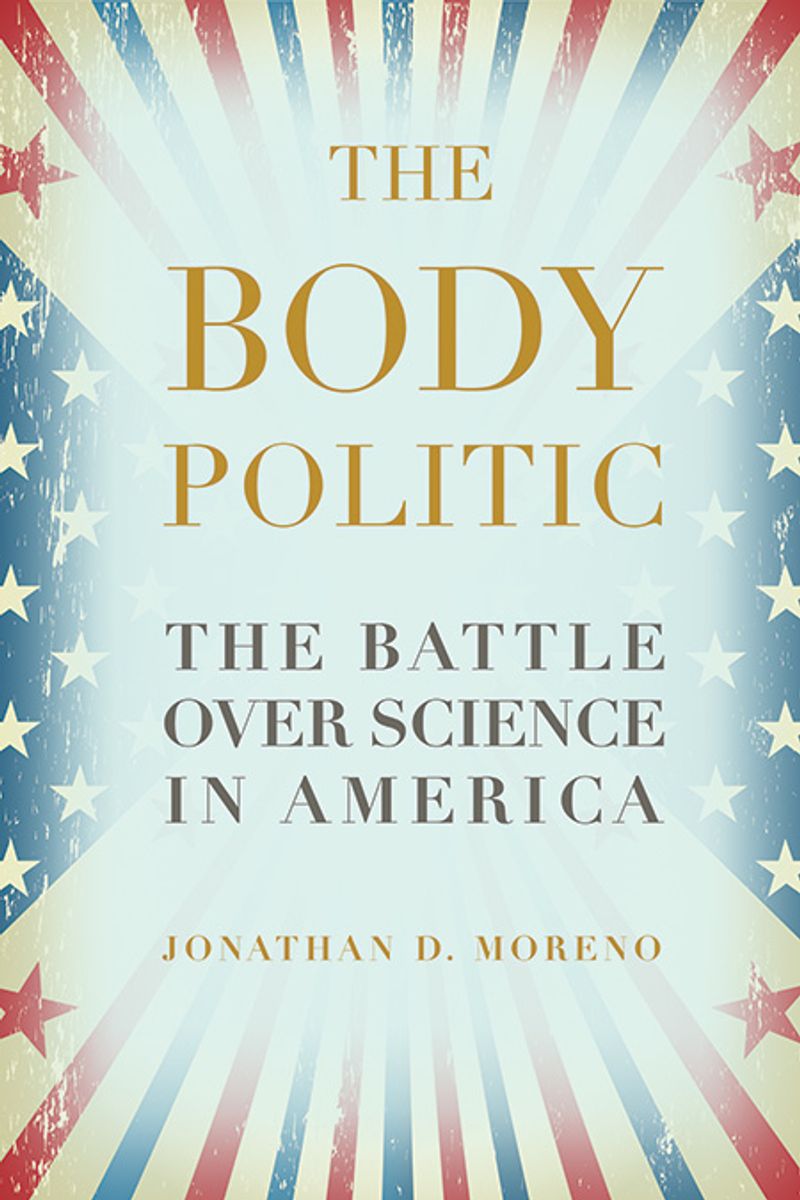The Body Politic
The Battle Over Science in America
In her foreword to Science Next, Elizabeth Edwards wrote of science as a tool for social progress: “Innovation is not simply the abstract victory of knowledge [or] the research that gave me years to live; the next science can advance human flourishing and serve the common good. That’s the kind of world I want to leave for my children, and for yours.” With these words, she joined a tradition that goes back to America’s founders, who saw America itself as a “great experiment.”
Yet while no one can deny that science undergirds the American Dream, it has long been fertile terrain for the “culture wars.” Along with arguing the pros and cons of abortion and healthcare, policymakers must now grapple with advancements that raise questions about what it means to be human: we’ve decoded the genome, but should we modify it to enhance certain “desirable” traits? If we can, should we prolong life at any cost? Will we soon be counting robots, cyborgs, and chimeras among our friends and family?
The first book to unpack our love/hate relationship with science from our country’s origins to today, The Body Politic is essential reading for science buffs and concerned citizens alike.
Kirkus Reviews “Best Book of the Year” selection
Atlantic “Reference Desk” recommendation

Ebook
- ISBN
- 9781934137468
Paperback
- ISBN
- 9781934137383
Jonathan Moreno talks to Salon, answers “9 ½ Questions” at The Atlantic, and delves into the intersection between bioethics and politics on Point of Inquiry
Listen to an interview with the author on WHYY’s Radio Times with Marty Moss-Coane and on KUOW’s Weekday.
Jonathan D. Moreno is a philosopher and historian who has advised many governmental and business groups and served on a presidential transition team. He is the author and editor of seminal books, including Impromptu Man: J.L. Moreno and the Origins of Psychodrama, Encounter Culture, and the Social Network; The Body Politic: The Battle Over Science in America, a Kirkus Reviews Best Book of the Year; Mind Wars: Brain Science and the Military in the 21st Century; and Science Next: Innovation for the Common Good from the Center for American Progress (co-edited with Rick Weiss). Called the “most interesting bioethicist of our time” by the American Journal of Bioethics, Moreno is a professor at the University of Pennsylvania, a member of the UNESCO International Bioethics Committee, a Senior Fellow at the Center for American Progress, and a regular contributor to the Huffington Post and Psychology Today. He divides his time between Philadelphia and Washington, DC.
visit author page »Praise for The Body Politic
A timely take on the debate raging over biotechnology breakthroughs . . . Moreno shows how developments in biotechnology have affected people across the ideological spectrum. . . . conservatives concerned about abortion, neoconservatives worried about threats to human dignity and liberals fretting that new biotechnologies will exacerbate existing economic inequality.
— Nature
Human cloning. Synthetic biology. Mood (and mind) altering drugs. Personalized medicine . . . The human future may be very different from the human past as these changes are negotiated and assimilated. And so may human politics. To help us prepare for this radical future is Jonathan Moreno, author of the new book The Body Politic: The Battle Over Science in America, which underscores the strange bedfellow allegiances that may occur in what has been called our ‘biological century’.
Scholarly, sophisticated and compelling . . . If only more of our contemporary political battles were as careful, as cogent and as well grounded as The Body Politic, I’d be more confident that the unprecedented decisions being forced upon society by revolutionary advances in biology would most wisely and effectively be made.
Moreno pulls apart the debates on eugenics, abortion, end-of-life decisions, embryonic stem-cell research, reproductive cloning, chimeras, and synthetic biology, among others, carefully reassembling what’s at stake for each side. In graceful, sparkling prose, he illuminates intricate threads of history and complex philosophical arguments. . . . Highly recommended for anyone interested in the[se] vital issues.
A concise but nuanced account of Enlightenment and post-Enlightenment debates about the role of science in American life.
— CHOICE
Historians will agree that ‘progress’ is as American as apple pie. What constitutes progress, of course, is always a point of contention. In The Body Politic, Jonathan D. Moreno examines the attitudes Americans hold about modern science’s treatment of the human body. . . . Throughout the discussion, it’s clear he has his thumb on the cultural and historical contexts in which these issues have arisen [and] Moreno explains that people on both sides of the aisle are expressing concern for unrestricted use of bioscience for different reasons . . . an excellent addition to any syllabus.
— ForeWord Reviews
A solid addition to any politics collections.
— Midwest Book Review (reviewer’s choice)
Moreno shrewdly tracks the history of science in American politics from Thomas Jefferson to today’s science culture wars. He explains how science and discovery have been central to our vision for the country, but often fueled a significant counter reaction. A must read for anyone who wants to understand science policy today.
— John Podesta, former White House Chief of Staff and President and CEO of the Center for American Progress
Since the beginning of our quest to win the Indianapolis 500 our family has believed in the power of technology. The only limits to that technology have been human ones. The Body Politic reminds us that in biology as well as engineering, America will always need that pioneer spirit.
— Al Unser, Sr., Al Unser, Jr., Bobby Unser, Sr., Indianapolis 500 Champions
A new wave of issues is coming at us—genetic testing, brain scans, synthetic biology, consumer eugenics—and radically challenging our notions of left and right. Jonathan D. Moreno has written a clear-eyed map of the emerging biopolitics—greens, transhumanists, bioconservatives, technoprogressives—and a thoughtful defense of inquiry, innovation, and the liberating power of science.
— William Saletan, author of Bearing Right: How Conservatives Won the Abortion War and Slate National Correspondent
This groundbreaking must-read book situates the biological revolution in its historical, philosophical and cultural context and, with almost breathtaking elegance, shows how society may come to define itself by the body politic.
— Nita A. Farahany, Associate Professor of Law & Associate Professor of Philosophy, Vanderbilt University; Member, Presidential Commission for the Study of Bioethical Issues
The Body Politic is a penetrating and uncommonly fair-minded analysis of how science is construed, nourished, and antagonized across the rainbow of American thought and belief. Highly recommended for all those who would base their political opinions on facts, rather than on other people’s opinions.
— Timothy Ferris, journalist, PBS filmmaker and author of The Science of Liberty: Democracy, Reason, and the Laws of Nature
Provides a fascinating, timely exploration of one of our era’s most momentous issues, the applications—and misapplications—of biomedical research.
— John Horgan, author of Rational Mysticism and Director, Center for Science Writings, Stevens Institute of Technology
Moreno clarifies major points of science-society tension over the last half century and brings a sharp eye to the societal context confronting future advances and their applications.
— Alan I. Leshner, Ph.D., American Association for the Advancement of Science (AAAS) CEO and Science Executive Publisher
The Body Politic reminds us that science occurs within a complex context that exerts powerful forces upon scientists, public officials, advocacy groups, and patients. Moreno has written the kind of book that needed to be written, combining detailed research, enlightened analysis, and an important message, all wrapped in accessible text.
— Eric M. Meslin, Ph.D., Director, Indiana University Center for Bioethics
A beautiful book.
— Jay Schulkin, Ph.D., Research Professor, Department of Neuroscience, Georgetown University
The Body Politic is required reading for anyone who wants to understand the history of American political thought about science, the dynamics of current controversies such as the stem cell debate, and the battle between those who see science as the route to a better future and those who see within the science the potential for a loss of our sense of human distinctiveness and dignity.
— Paul Wolpe, Ph.D., Director, Center for Ethics, Emory University and Chief of Bioethics for the National Aeronautics and Space Administration (NASA)

